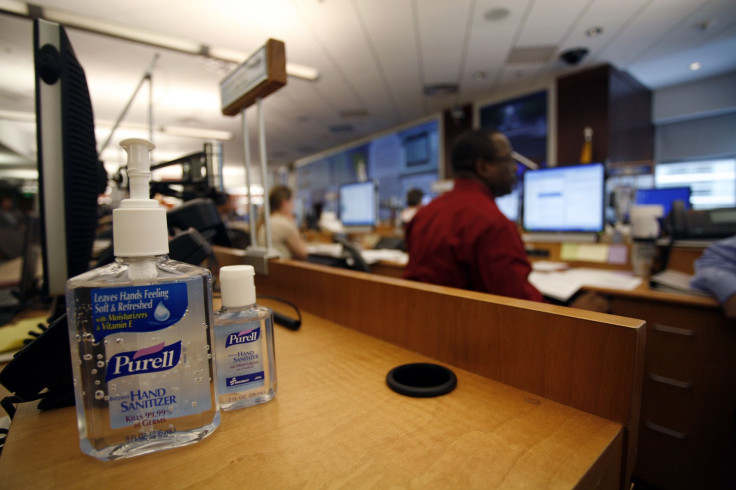Does Hand Sanitizer Kill Ebola? Sales Soar Amid Global Outbreak, But Is Chlorine Better?

Amid the world’s deadliest Ebola outbreak in history, hysteria has hit the United States, with hand sanitizers reportedly flying off store shelves. Soap.com, a site owned by Amazon, said its hand sanitizer sales jumped 20 percent in one week. Eric Williams, an independent candidate for Congress, told the Washington Post that stores in Dallas, home to the first diagnosed Ebola case in America, are selling out of hand sanitizer.
“My wife and I went to look for some – we had to go to three different stores before we were able to find one bottle of sanitizer,” Williams said Wednesday. But can those little plastic bottles of goop actually do any good against the contagious disease? It turns out the answer is yes. Hand sanitizers — along with chlorine, heat, direct sunlight, soaps and detergents — can kill Ebola living outside of a host, according to Doctors Without Borders and numerous reports.
To be sure, hand sanitizer is no substitute for careful hygiene. The federal government advises washing hands with soap and water immediately after contact with potentially affected areas, objects or persons. When soap is not available, the Centers for Disease Control and Prevention says waterless alcohol-based hand sanitizer with at least 60 percent alcohol is a good substitute.
For those who want something stronger, Bill Horan, president of Operation Blessing, a non-profit humanitarian organization, told the Washington Post chlorine is most effective. “Soap and water is better than nothing, but chlorine and water is what will kill the virus and stop the spread of Ebola,” Horan said last week.
The often fatal virus spreads through direct contact by touching bodily fluids—such as blood, sweat, feces, saliva, urine, vomit and semen—of a person who is infected with Ebola. According to the CDC, “hand hygiene is the most important infection-control measure.”
Ebola is one of the most deadly diseases in the world if contracted. It can kill up to 90 percent of infected people, according to Doctors Without Borders. “We’re fighting a forest fire with spray bottles,” Doctors Without Borders spokesperson Ella Watson-Stryker wrote last month.
© Copyright IBTimes 2025. All rights reserved.





















